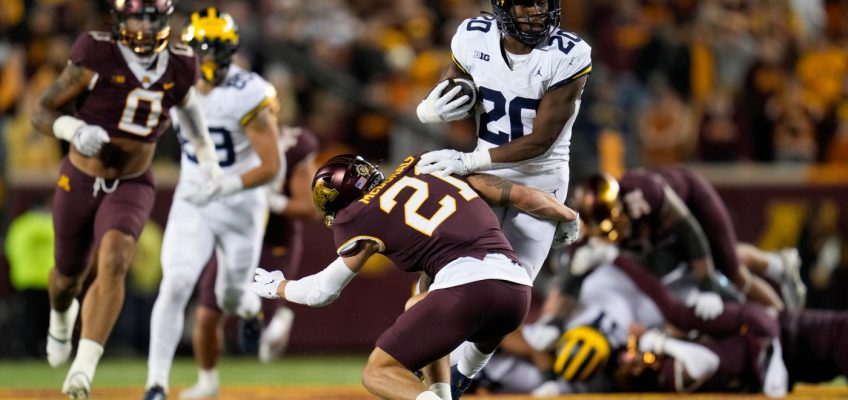Horror movies are among the most inventive in cinema, doubling back on tropes to reinvent themselves while taking risks with storytelling and extreme imagery. They’re a mainstream concern, too, speaking to our anxieties, social chaos and marginalization of women and people of color. And there’s more of them than ever.
Fortunately, that includes a lot of soon-to-be classics that have been released over the years. They draw from genre hallmarks ranging from the locally relevant “The Shining” (inspired by Estes Park’s Stanley Hotel) in 1980 to newer titles such as “It Follows” (2014), “The Witch” (2015) and “Hereditary” (2018).
“The world is terrifying and looking out your window is scary with so many horrific things happening day after day on the news and the internet,” said Theresa Mercado, who programs the Scream Screen horror series at the Sie FilmCenter. “Horror-movie escapism helps people take a break from true, real horrors, because you’ve got to have some outlet right now.”
That series, which returns with “Theatre of Pain” on Saturday, Oct. 26 (see denverfilm.org for more), typically highlights obscure horror movies. For a more familiar lineup, check out AMC’s BlumFest, with titles from that horror-production company’s roster including “Insidious 2,” “Five Nights at Freddy’s” and “The Black Phone” (through Oct. 30 at various locations; amc.com). The Telluride Horror Show also returns to that mountain town this weekend, Oct. 11-13 (telluridehorrorshow.com), with some of the best new explorations of blood and fear.
But if you missed the best titles of the last five years — and that’s easy to do, considering the glut of low-budget movies on streaming menus — here’s a quick guide to get you in the mood for Halloween, and the potentially horrifying presidential election on Nov. 5.
They’re not hard to find. And they won’t be easy to shake.
“Barbarian” (2022)
This stunningly tense, entertaining movie from writer-director Zach Cregger begins as a tale about the dangers of Airbnbs — a justified and very contemporary concern — before pivoting into something much stranger, darker and more inventive. Despite its ever-ratcheting gore and suspension of disbelief, it’s a fun ride that reminds us horror movies can be at once wacky, disciplined, and cheer-worthy.
Also recommended: “Malignant,” a lesser film with an impressively hilarious plot twist that almost makes “Barbarian” seem grounded.
“I Saw the TV Glow” (2024)
The fuzzy outlines of the Reagan and Clinton eras subtly define this divorced-from-time tale about two high school students who bond over a surreal, menacing, Nickelodeon-esque TV show. It beautifully captures the awkward uncertainty of adolescent longing, but also the way our memories curdle over time. It’s a dreamlike thriller that’s light on jump scares and gore, but buffeted by waves of nonverbal anxiety, with a killer soundtrack to boot.
Also recommended: “Skinamarink,” a disturbing, impressionistic slow-burn that creates a similarly creeping, domestic claustrophobia, albeit with more experimental filmmaking techniques, and “Late Night with the Devil,” which makes literal TV’s evil potential.
“The Substance” (2024)
Demi Moore’s performance as an aging actress delves head-first into the misogynistic expectations of women in entertainment, but makes a decidedly bloody and satirical turn as her character begins taking a pill to make her younger. The less you know about this masterful body-horror tale the better, but if you want to sample the zeitgeist, be sure to see it in theaters.
Also recommended: Body horror, a genre practically invented and perfected by David Cronenberg (“The Fly,” “Crash”), is having a renaissance with this and other films that consider where we end and others begin. See “Infinity Pool,” “Crimes of the Future,” “Under the Skin,” and “Enys Men” for sterling examples.
“Longlegs” (2024)
Heavy on atmosphere, and with a truly bizarre, controlled performance by the usually-unhinged Nicholas Cage, this film is elevated by modern scream-queen Maika Monroe’s calibrated performance. The blanketing dread injects extra pallor to every grim setting, since the FBI murder-investigation plot is nearly incidental to Monroe’s own descent into a world of traumatic memories — and even worse realizations.
Also recommended: Although their subject matter and tones differ, you may also enjoy atmosphere-driven titles such as “Midsommar,” “The Invitation” and “It Comes at Night,” all of which slowly draw you through dark, unsteady paths.
“The First Omen” (2024)
Remakes and sequels are rarely worth your time, even as they tend to be the ones served up first by algorithms. Recent exceptions include titles such as the “Evil Dead” remake (2013) and this prequel to the 1976 supernatural classic, “The Omen.” How did little Damien come to be, and why? You’ll get answers in this light but surprisingly propulsive prequel, which packs decades of religious themes into its Rome setting and twisting plot.
Also recommended: Films that unearth tropes about arcane, shadowy Catholic rituals are a dime a dozen, but newer titles such as “Immaculate,” “The Nun II,” and the Russell Crow-starring “The Exorcism” and “The Pope’s Exorcist” are at least dumb and self-aware enough to be enjoyable romps.
Related Articles
‘Woman of the Hour’ review: Anna Kendrick’s directorial debut far from perfect
‘Super/Man: The Christopher Reeve Story’ review: A moving story of an actor’s heroism, onscreen and off
Why ‘The Apprentice’ is not the Donald Trump film you’re expecting
‘Disclaimer’ review: Thriller series from Cuarón, Blanchett seduces, frustrates
Movie review: How did Trump become Trump? ‘The Apprentice’ has a theory




